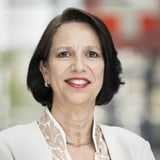contents
Helpers speak of an official marathon. The Head of the State Secretariat for Migration SEM comments.
The distribution of the refugees and their accommodation are not only a challenge for helpers, but also for Christine Schraner Burgener, head of the State Secretariat for Migration. She takes a position on SRF – especially on the criticism that people who take in women and children from Ukraine are being left in the lurch.
SRF News: Private individuals who have taken in Ukrainian refugees say they are being let down by the authorities, saying it is a huge organizational marathon. What do you think?
Christine Schraner Burgener: It is of course a huge challenge for everyone. It is the first time since World War II that we have so many migrants at once. We registered almost 47,000 people in seven weeks. That means around 1000 per day and that over seven days. We tried to inform the population immediately: we have a website that is also available in Ukrainian, there is also a hotline and you can write to us. But it’s clear: for those who are hosting, it’s difficult to get your bearings at first and it’s a challenge as a host.
Federalism is proving to be a major challenge. What solutions are you working on?
We have the special asylum staff set up by the Federal Council, which I head. All cantons are represented there, but also the association of cities and municipalities. Up to now we have met once a week and discussed the problems together. At the beginning it was said: We are glad that we have private accommodation. And in consultation with the cantons, this was also done. There are now 12 cantons that no longer want this. Everyone wanted a return to the allocation key that we always use, including for asylum seekers. We have now used this distribution key and there may sometimes be disappointments because it is now divided up according to the canton key.
Many refugees want to go to the cities because they already know people there, have friends and family. But it’s getting tight in the cities. How do you regulate this balancing act?
We do not apply the distribution key retrospectively. This means that those who are already accommodated in one place can stay there. And those who are newly registering and want to be with family members, we leave them there too. We don’t tear families apart. If the children have already started school, they can of course stay there. With the other people, we look on a case-by-case basis to see if there are reasons for where they want to go. But if someone says, for example, that I like it better in Basel-Stadt than in Glarus, then this is no longer enough; so that the cantons and cities are not burdened unequally.
Criticism comes mainly from the left, but also from refugees from other countries, that protection status S represents special treatment for Ukrainians. How do you justify this?
The S status was set up in 1995 after the ex-Yugoslav conflict to accommodate precisely such wartime refugees. Because if 47,000 people were now admitted to asylum centers and had to go through an asylum procedure for 140 days, the system would have collapsed. This is why S status is ideal for those displaced by war. But he’s just about to come back. That means they have to go back at some point. The other people go through the asylum process and if they don’t get asylum but can’t go back, then they get provisional admission. Preliminary admission is roughly similar in terms of conditions to S status. But it is also clear to us: We have used the S-Status for the first time and we will certainly carry out an evaluation soon to see how the S-Status has worked so far, how it compares to others. There are bound to be further discussions.
The conversation was led by Bigna Silberschmidt.
